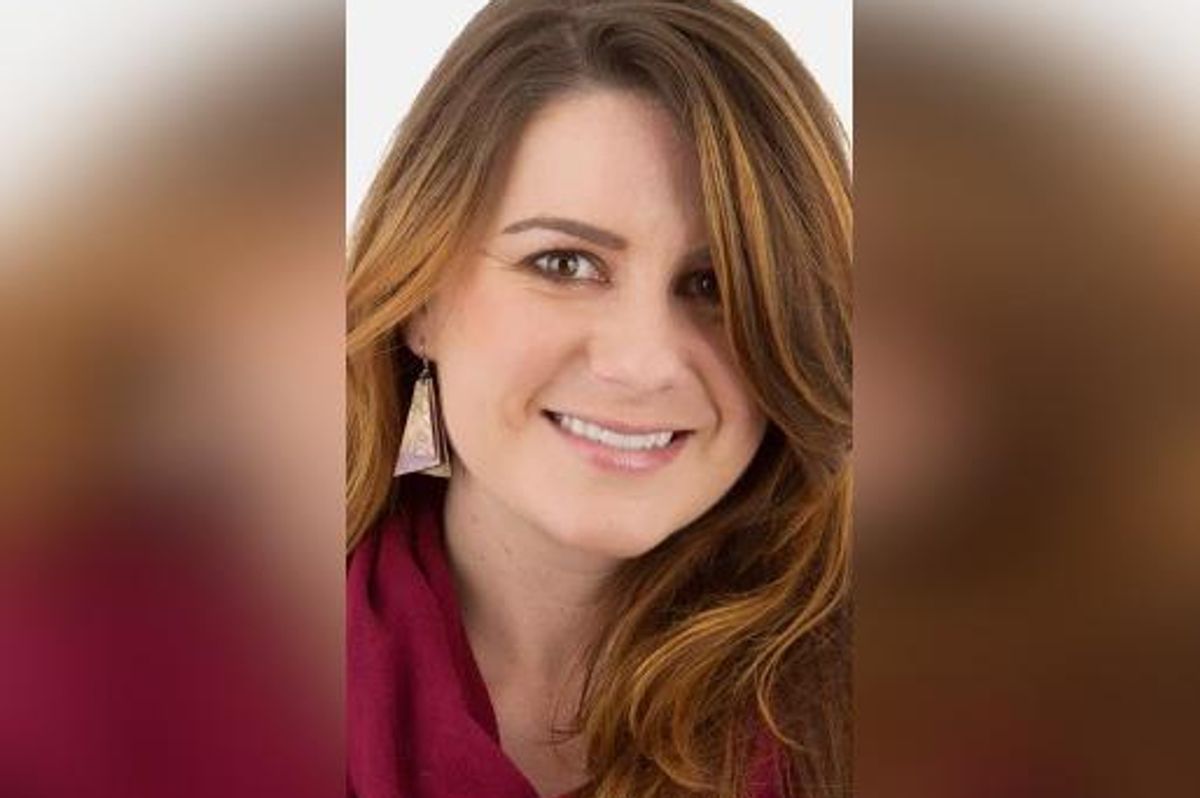Houston startup names new exec, innovators join prestigious program, and more news
short stories
Houston's cooling down, but the city's innovation news is heating up, and there might be some headlines you may have missed.
In this roundup of short stories within Houston startups and tech, a Houston startup has a new C-level exec, two innovators join a international cohort of leaders, and more.
NanoTech names new chief commercial officer

Carrie Horazeck is now the chief commercial officer for NanoTech. Photo courtesy of NanoTech
Houston-based materials science company NanoTech Inc. has appointed Carrie Horazeck as chief commercial officer for the startup, which created a fireproofing and carbon reduction through cool roof coatings. In her new role, Horazeck will lead marketing and sales strategy for the growing company.
“I’ve been a fan of NanoTech since I first met co-founder and CEO Mike Francis at a Halliburton Labs event last year," Horazeck says in a statement. “It’s an incredible team, with an incredible product. They are on the precipice of major growth and I’m very honored to be a part of that journey.”
Prior to NanoTech, Horazeck spent 11 years in management consulting helping to grow her clients' businesses, staying tuned into consumer trends and behaviors to guide product development and intelligent marketing strategy. She's worked with a wide range of industries and clients including Samsung, General Mills, Newell Brands, Coca-Cola, Unilever, American Express, British American Tobacco, Anheuser-Busch, and the Department of Education in New York City. Most recently, she led commercial development and market penetration strategy for an Austin based startup in the renewable energy space.
"We are excited to have Carrie join the NanoTech team. She is going to help us get one step closer to our goal of reducing carbon emissions with our cool roof coating and fireproofing critical infrastructure," says Francis in the statement.
2 Houstonians named to global cohort

Houstonians Allie Danziger and Natasha McDaniel were announced to be joining the Fall 2022 Milestone Makers cohort. Photos courtesy
Two Houston innovators have been named to Nasdaq Entrepreneurial Center's Fall 2022 Milestone Makers cohort, which selects individuals addressing the United Nation's Sustainable Development Goals.
The virtual, 12-week program provides individualized mentorship and executive coaching, as well as access to the Center’s vast network of industry experts to help each founder with his or her milestone. The new cohort was selected through application process, and all hope to improve the lives of and support communities across the globe. The two Houstonians in the current cohort include:
- Allie Danziger of Ampersand, which enhances employee retention by ensuring mastery in key skills required for entry-level professionals.
- Natasha McDaniel of Lit for Life, which offers culturally relevant reading and writing resources as well as family coaching and educational consulting services.
Applications are open for the Winter 2023 program are now open.
Houston robotics company to ring the bell on Wall Street

The Nasdaq Bell Ringing Ceremony for Nauticus Robotics, Inc. will take place this Thursday. Image via LinkedIn
Houston-based Nauticus Robotics, which went public last month via SPAC, is due to ring the Nasdaq bell on Wall Street.
The company, which now trades under the $KITT ticker, will have its bell ringing ceremony beginning at 2:45 p.m. CT on October 20 and can be viewed via this link.
Nauticus continues to be led by CEO Nicolaus Radford and the current executive team.
“The closing of this business combination represents a pivotal milestone in our company’s history as we take public our pursuit of transforming the ocean robotics industry with autonomous systems,” Radford, who founded what was known as Houston Mechatronics in 2014, said in a news release about the IPO. “Not only is the ocean a tremendous economic engine, but it is also the epicenter for building a sustainable future.”
UH named 2022 Hispanic Serving Institution Leader by U.S. Fulbright program

UH — and its students — have been recognized by the Fulbright organization. Photo courtesy of UH
For the second year in a row, the University of Houston has been named as a 2022 Fulbright Hispanic Serving Institution Leader.
“As the state’s premier Hispanic-Serving Institution and a top Fulbright producer, the University of Houston strives to ensure an environment of inclusion and success for all,” said UH President Renu Khator. “This recognition is yet another milestone that reinforces what so many already know about our institution … that our students are supported both culturally and academically.”
The recognition was announced the Hispanic Association of Colleges and Universities annual conference in San Diego on Oct. 10.
The University of Houston recently announced 10 student Fulbright recipients, each prepared to travel far and wide to gain international insights, according to the news release. Since 2018, nearly 50 Fulbright scholarships have been awarded to UH students.
“Enhancing learning and research experiences for students and faculty through the Fulbright Program is important to expanding the University’s international footprint,” says Michael Pelletier, executive director of UH’s Institute for Global Engagement in the release.
Texas investor named among outstanding women in clean energy

Phoebe Wang was honored for her work at Shell Ventures. Photo via LinkedIn
The U.S. Department of Energy recently announced the nine winners of the 2022 Clean Energy Education & Empowerment Awards that honors women for outstanding leadership and accomplishments in clean energy.
“For too long, there has been a significant gender gap in the energy sector, meaning half the population have had a minimized impact on one of our most important industries,” says U.S. Secretary of Energy Jennifer M. Granholm in a news release. “As we transition to a clean energy economy, we will have to tap into the pool of amazing women working in energy and grow their ranks. That’s why DOE is proud to recognize the winners of this year’s C3E Awards, a diverse group of changemaking women tackling some of the biggest challenges in energy.”
Among the honorees, Phoebe Wang, formerly of Shell Ventures and based in Texas, was recognized in the business category. Wang "leads investments in early- and late-stage startups working on technologies to accelerate the energy transition in the areas of hydrogen, carbon capture utilization and storage, energy storage, mobility, and power," per the release. In the past decade, she has invested more than $150 million startups and has been closely involved in the Rice Alliance for Technology and Entrepreneurship. Last week, Wang was announced to be joining the Amazon Climate Pledge Fund as investment partner.
Now in its 11th year, the C3E Inititive led by the DOE — in collaboration with the MIT Energy Initiative, Stanford University’s Precourt Institute for Energy, and the Texas A&M Energy Institute — will award each winner with a cash gift of $8,000 and national recognition of their efforts.




